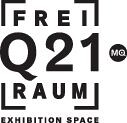July 6–September 4, 2016
Museumsplatz 1
1070 Vienna
Austria
Hours: Tuesday–Sunday 1–7pm
T +43 1 5235881
office@mqw.at
Austria celebrates the 50th anniversary of the contract of April 4, 1966 between the Republic of Austria and the Socialist Federal Republic of Yugoslavia establishing a basis for the legal and voluntary migration of labor, and so creating the “Gastarbeiter” (Lit. guestworker) phenomenon. Article 9 of this historically significant contract specifically endorsed the promotion of this mobile workforce’s own cultural and social life, and led to the founding of over 100 workers social clubs. AJNHAJTCLUB, curated by Bogomir Doringer, explores the history of this community as reflected in their clubs, which were not only regarded as spaces for maintaining and bolstering cultural identity and for providing a sense of participation, but also provided a vent for nostalgia towards the old homeland. Admission is free.
The AJNHAJTCLUB (pronounced “Einheit Club”—Unity Club; “Jedinstvo Klub”) aims to unite the migrants’ past and present narratives using contemporary artistic practice and research, providing a look back to inform the future. Although more familiar from black and white imagery, the guestworker phenomenon is still alive. The exhibition shows this phenomenon in full color.
The artworks in the exhibition space are arranged around a monumental projection of Marta Popivoda’s* film study on Yugoslavia: How Ideology Moved Our Collective Body, with a very personal take on the history of socialist Yugoslavia and its tragic end. Archive footage shows the power of ideology to shape collective performances by crowds of people operating as one, and the collective body’s power to destroy this ideology.
Claudia Maté’s* 3D animation is an uncanny mix of sexually charged images inspired by milieu-specific imagery in the mass media. Maté engages with the voyeuristic pleasure we derive in observing migration from a distance, working with avatars to suggest the connection between old and new migration while also illustrating models of exploitation.
Vladimir Miladinović* has copied and enlarged the original “guestworker immigration” contract by hand to revise and re-articulate the relationship between the bureaucratic machinery of the state and migrant workers.
The first guestworkers clearly helped the growth of the Austrian economy, and “integration” has ensued for subsequent migrant generations, many of whom are now naturalized Austrians. Artist Milan Mijalkovic’s large format photograph presents a worker at the construction site adopting a heroic posture.
The exhibition offers a stage for self-organized cultural initiatives, such as the Hor 29. Novembar choir, which represents “a politically engaged popular music heritage,” combining “critique of geographically fixed understandings of culture and racially confined notions of national heritage with raising the visibility of the migrants’ cultural past, and popular music past in particular, while fostering a dialogue between different generations of migrants in Austria.”
In Austria the guestworker phenomenon it is still alive today, deeply embedded in daily life and not historically resolved. The term guestworker is a blanket one, confusing those who came under the contract signed in the 1960’s with succeeding generations of migrants.
Artists:
ATK!* (Belgium), Evelyn Benčičová (Slovakia) & Adam Csoka Keller (Slovakia/Canada), Ljubomir Bratić (Austria), Juan Pablo Cámara* (Argentina/Netherlands) & Michele Rizzo* (Italy/Netherlands), Leyla Cárdenas* (Colombia), Olga Dimitrijević* (Serbia), Mladen Đorđević (Serbia), HOR 29. Novembar (Yugoslavia/Austria) & Turbo Tanja (Serbia/Austria), Nikola Knežević* (Serbia/Netherlands), Marko Lulić (Austria), Claudia Maté* (Spain), Milan Mijalkovic (Macedonia/Austria), Miroslav Mikuljan (Croatia), Vladimir Miladinović (Serbia), Goran Novaković (Austria), Josip Novosel* (Croatia), Bernd Oppl (Austria), Krsto Papić (Croatia), Antonis Pittas* (Greece/Netherlands), Marta Popivoda* (Serbia), Roberto Uribe-Castro* (Colombia/Netherlands), Addie Wagenknecht (USA), and others
*Q21/MQ Artist-in-Residence
Curator: Bogomir Doringer (Serbia/Netherlands)
The exhibition project AJNHAJTCLUB is organized in cooperation with the Federal Ministry for Europe, Integration and Foreign Affairs (BMEIA), and the Austrian Integration Fund (ÖIF).
Director of the MuseumsQuartier Wien: Dr. Christian Strasser
Enquiries:
Press, MQ: Irene Preissler
ipreissler [at] mqw.at
Artistic Director, frei_raum Q21 exhibition space: Elisabeth Hajek
ehajek [at] mqw.at



